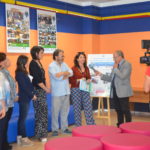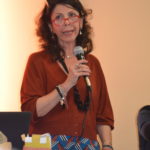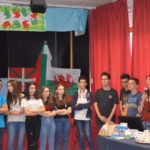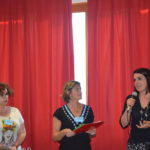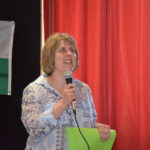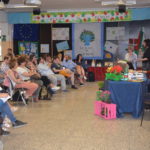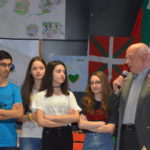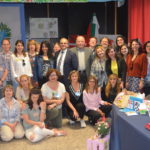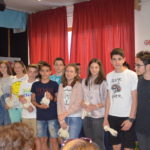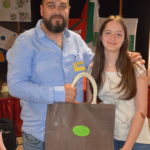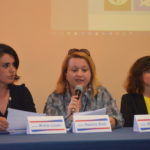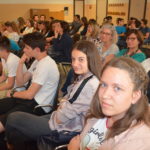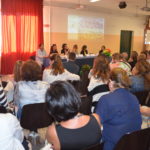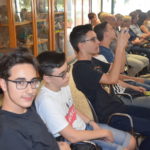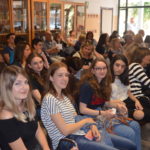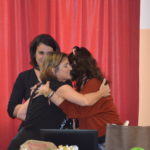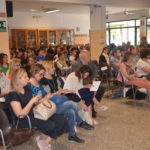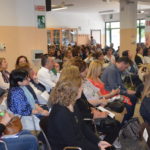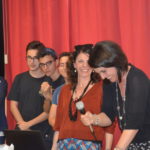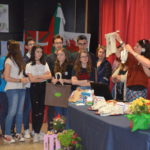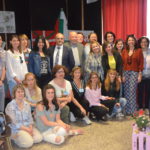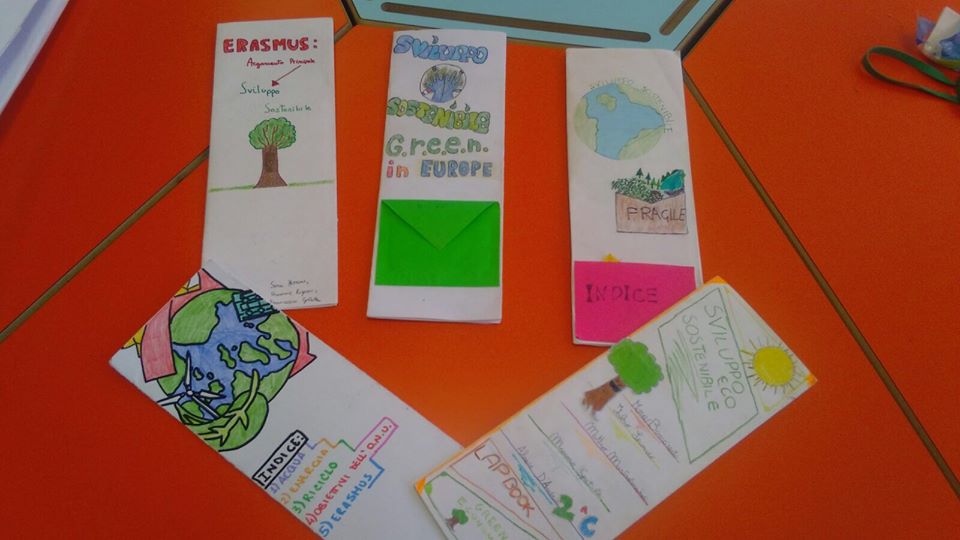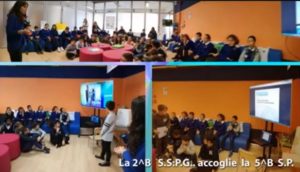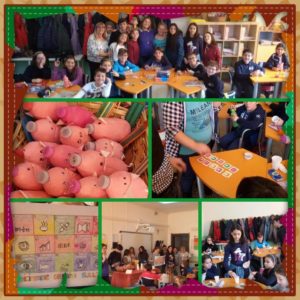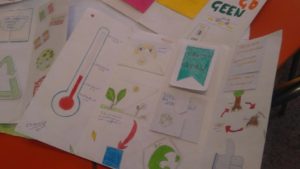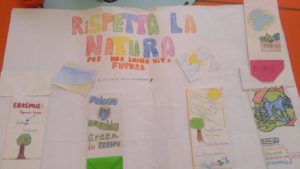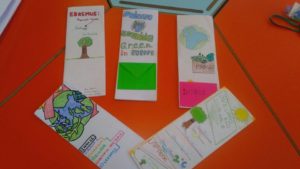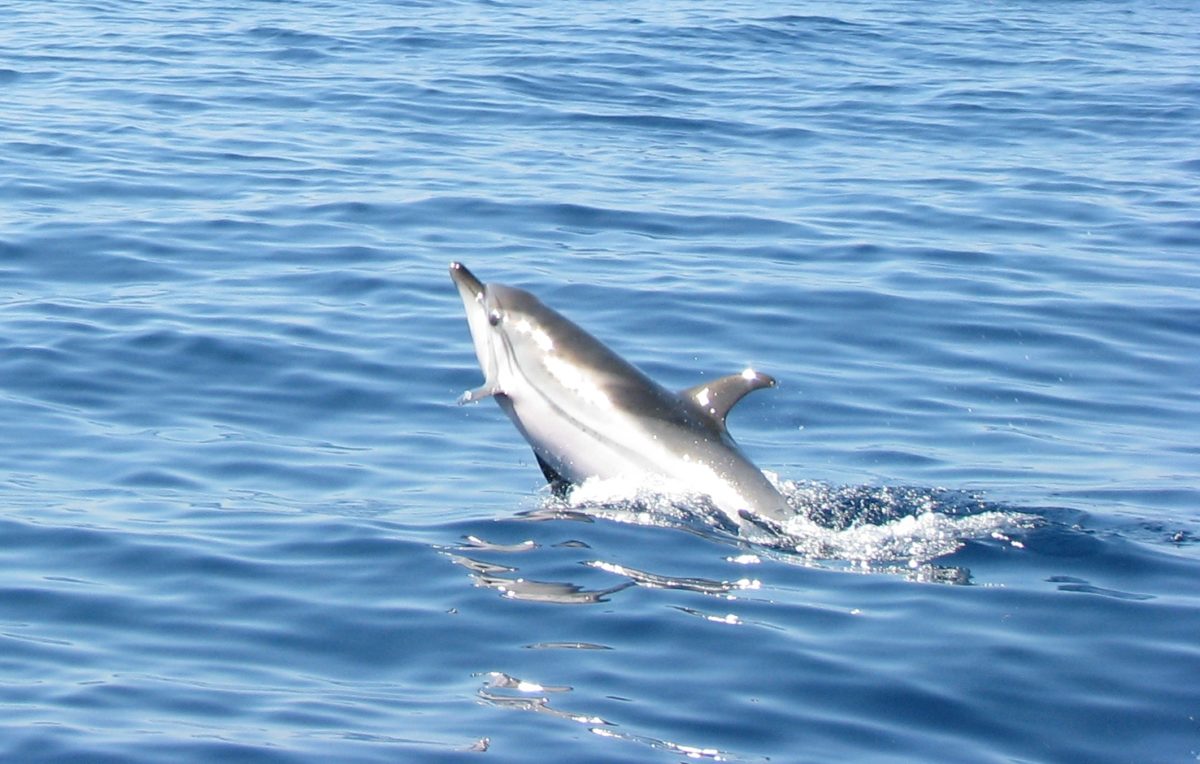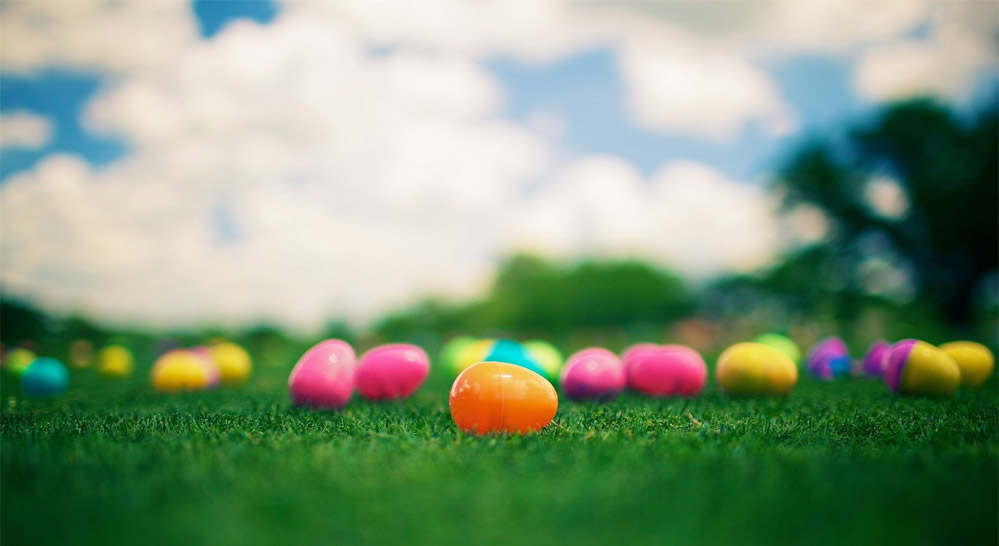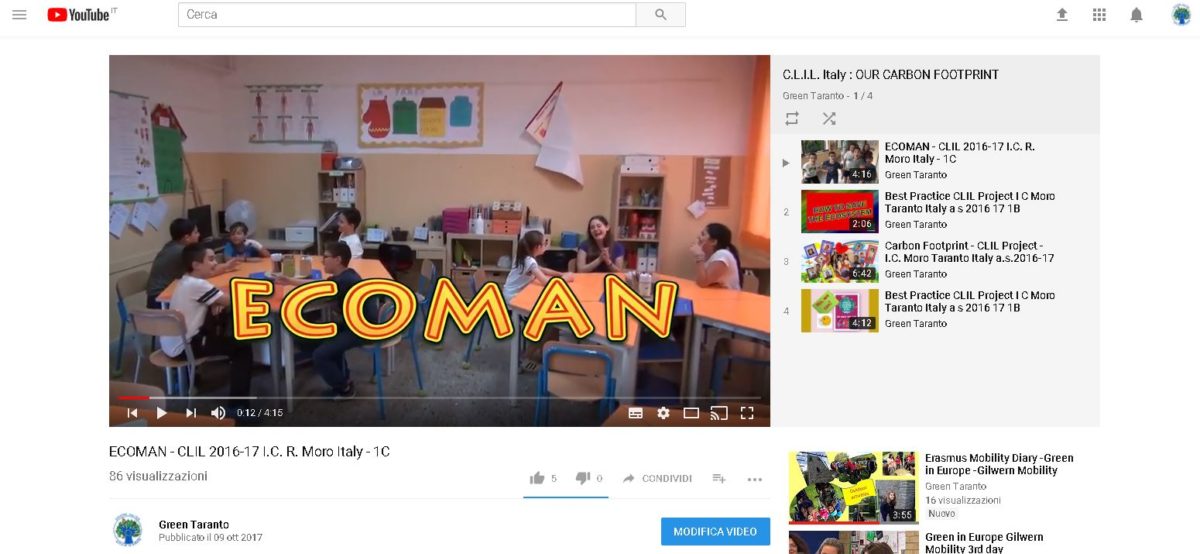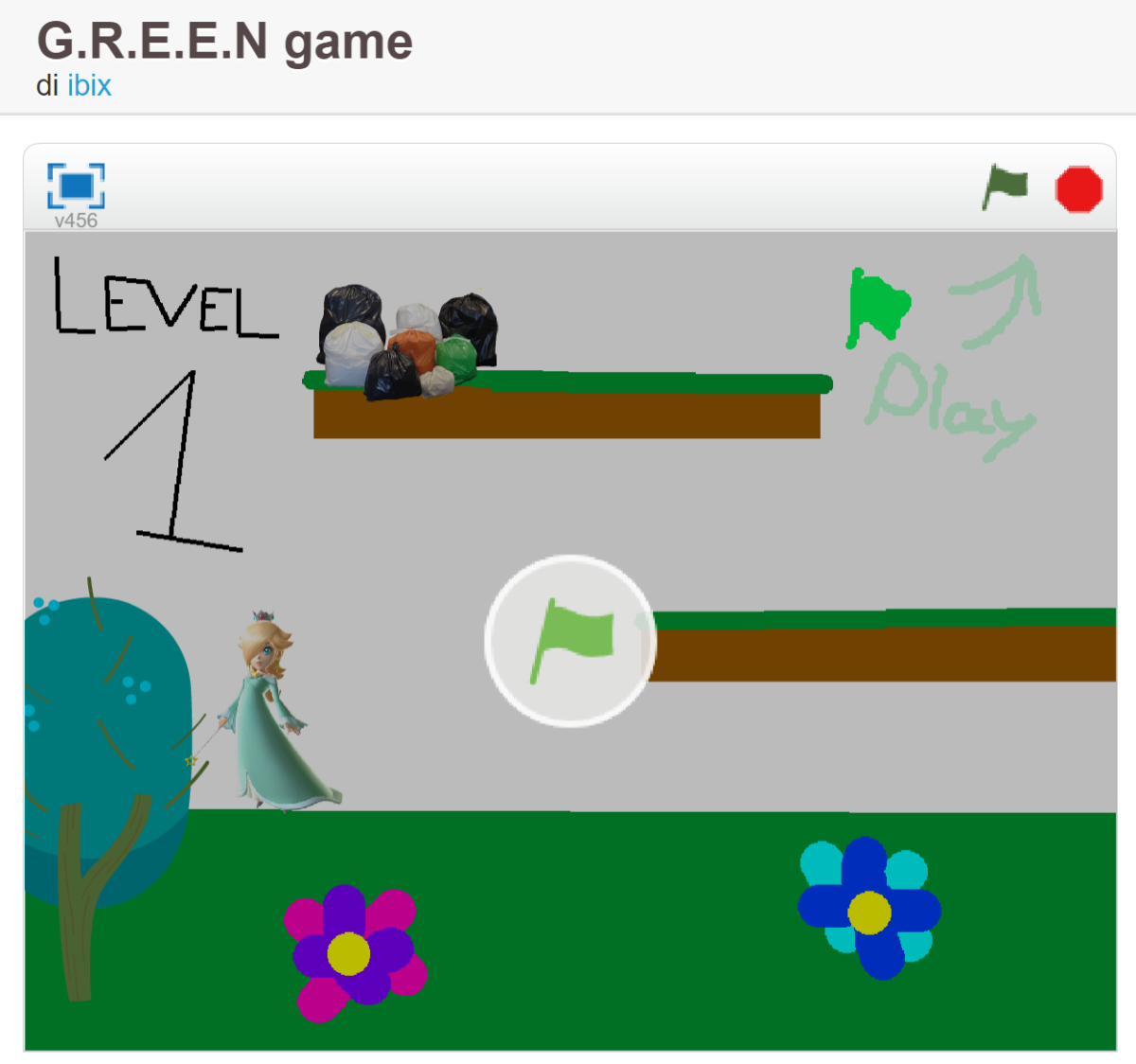At the end of our Erasmus + project “G.R.E.E.N. in Europe”, years 2016-2018, we report the speech of the Headmaster “Loredana Bucci” of the Comprehensive Renato Moro Institute at the final meeting held in Taranto on May 17, 2018.
This evening’s conference and the challenge of this morning conclude the innovative and exciting training course that lasted almost three years, from the design phase to the approval, application, realization and presentation of the final products, of our Erasmus plus Project entitled ” GREEN IN EUROPE “.
The “challenge” that the students of some second and third classes launched this morning to the Bulgarian students hosted on a problematic situation in Taranto, conceived and presented by the same boys and linked to the seventeen goals of the Agenda 2030, through the application of the business model CANVAS, as a resolutive strategy of the same problematic, was the tangible proof of the didactic commitment, of the study and research carried out by the teachers and pupils of the countries involved.This evening’s conference, in addition to summing up the design experience of the two years, will also see the presentation of the various outputs, edited by the Project Coordinator prof. Luca Battista and of the Primary School Coordinator Dr. Michela Leandro, ie the main and important products made by young people: from the packaging of eco-sustainable products to the commercials made, to the presentation of business models and related start-ups. Following the award ceremony.
The project, as we all now know, was born with the aim of exchanging and disseminating among teachers and students of our countries (Italy, Basque Country (Bermeo and Bilbao), Wales (Gilwern) and Bulgaria (Sofia) belonging to the European Community, “best practices” in the field of Green lifestyle, green economy and sustainable economic development.
Dear guests, in these two years we have tried to know, to spread, disseminate initiatives, paths and teaching practices aimed at making our young generations and therefore future citizens of the world acquire the fundamental knowledge and skills to mature a style. of life respectful of the environment, an entrepreneurial style starting from the reading, more than critical, proposing of our territories. And we believe that the results achieved are more than positive !
This is the occasion to thank with gratitude all the teachers, the professors involved and all the youngsters who, besides being guided by their teachers, have proved to be receptive, proactive and super active !
Now it’s up to you guys to mobilize families and territory !
Another important objective of our project was the training and self-training of teachers and students on the concepts of sustainability through the exchange of resources or useful documents and resources via the web.
Hence the need to acquire and develop certified technological skills through a targeted training path realized in the kick off meeting held in Taranto in November 2016 and also yesterday at our Institute with the issue of suitable certification, the ONLINE COLLABORATION. This training opportunity has allowed to overcome the physical distances between the various schools and the actors involved, encouraging online collaboration.
The training of the students, by the teachers through curricular and additional paths on the concept of sustainability, has allowed to identify and develop the relationships between environment-productive activities and companies in a mainly positive sense, but at the same time also allowed to mature sustainable behavior in in line with the Green Lifestyle and to train above all 1st grade secondary school pupils on fundamental principles and concepts such as Economics-Finance and Labor Market.
The onsite and online exchange and the dissemination of “good practices” that generate habits, ideas, solutions and entrepreneurial products linked to the principles of healthy living and sustainable economic and social green development, starting from local problems, has been the continuation of the training itinerary of the project.Undoubtedly at the base of these good practices it was essential to develop and implement, in the course of curricular activities, skills such as technology, language (English), advertising, initiative and entrepreneurship through the drafting of simple business plans and the next study of the Business Model Canvas
But let’s go over the various mobility together.
The first mobility took place in March 2017. Ten students of the secondary classes of the SSIG lived with the undersigned manager of this Institute and the accompanying teachers, an extraordinary experience in the Basque Country, host partner country, and in particular in Bermeo / Bilbao where they experienced a significant moment of cultural exchange that allowed them to know and deal with a socio-economic context, that of Bilbao, which thirty years ago presented the same environmental problems of the city of Taranto. The comparison between what was Bilbao and the discovery of eco-sustainable urban renewal allowed the students to discover a “best practice” to be “replicated” in their territory.We have also learned from the friends BASCHI … THEIR SENSE OF STRONG MEMBERSHIP, OF CORPORATIVISM, WHICH SUPPORTED THEM IN MANY YEARS IN THE SEARCH OF SOLUTIONS TO THE VARIOUS PROBLEMS.
“IL SENSO DI APPARTENENZA,” feeling compact … united … team … it is certainly the right spring to reach important goals and overcome difficulties.
In this school year, for the second year of the project, the mobility of primary school pupils took place. In October 2017, 11 students, always accompanied by the Scholastic Director and some teachers took part in the second mobility, this time in Wales to find out what it means to live according to an eco-sustainable lifestyle and get to know an ECOSCHOOL. The host school in Gilwern is Gilwern Primary School, a school where the watchwords are three: “RECYCLE, REUSE, REDUSE”. RECYCLE, RE-USE, REDUCE “.
Of GALLESE we have appreciated their wonderful “LIVE SLOW”, centered on the enhancement of natural beauties: a dimension of life that helps to mature a style oriented more towards “own wellbeing” and therefore … “feel good about yourself … it is equivalent to … feel good also with others “! In the green of your nature we have been really good … even our little ones!
Finally, in February 2018, the third mobility took place in Sofia, at the school “137 Angel Kancev”, during which the teachers attended an important training course at the “SofiaTech” center organized by the experts of the Junior Achievement. . The training day allowed the mobility participants to know what is at the base of the development of each “business plan”, that is the model of development of an entrepreneurial idea also called “Business Model Canvas” and the “social” version of the same. The “model” is the basis for the development of start-ups and is widely used by the teachers of the “Angel Kancev” secondary school in the entrepreneurial education path. Thanks to this training experience, the teachers of the I. C. Moro have been able to gain awareness that educating entrepreneurship is possible, but above all that, as underlined by the same experts of the Junior Achievement, the “Model Canvas” can constitute a “canvas” from which to carry out any planning activity.
Of the BULGARIANS we have especially APPRECIATED THE ATTENTION TO THE FUTURE GENERATIONS, a dimension of life projected towards the professional working realization.All these “our” qualities have allowed us to “appreciate” each other …, to understand and live our DIVERSITY as a real added value … that has allowed us to “compensate” us and at the same time to aim at acquire the qualities of each one of us.
We would be very happy to know, at the end of this summary, what the Erasmus friends think of us and our qualities.
Finally, it should be recalled that the quality element of the project was the Europass Mobility, ie the certification of all the mobility of cultural exchanges achieved, using the certification system for training credits provided for by the Europass European mobility plan.We believe that the structure of the project is certainly easy to convert, that is an exportable school curricular process that can be an example for other schools, but above all replicable in our educational institutions in line with the most recent changes made by MIUR to the National Guidelines with the document “National Indications and New Scenarios” in relation to the thematic scope of Citizenship and Sustainability.



